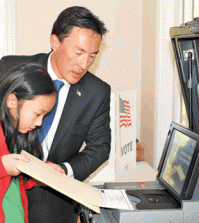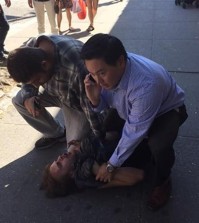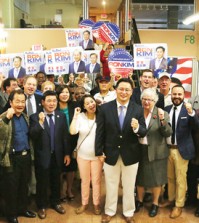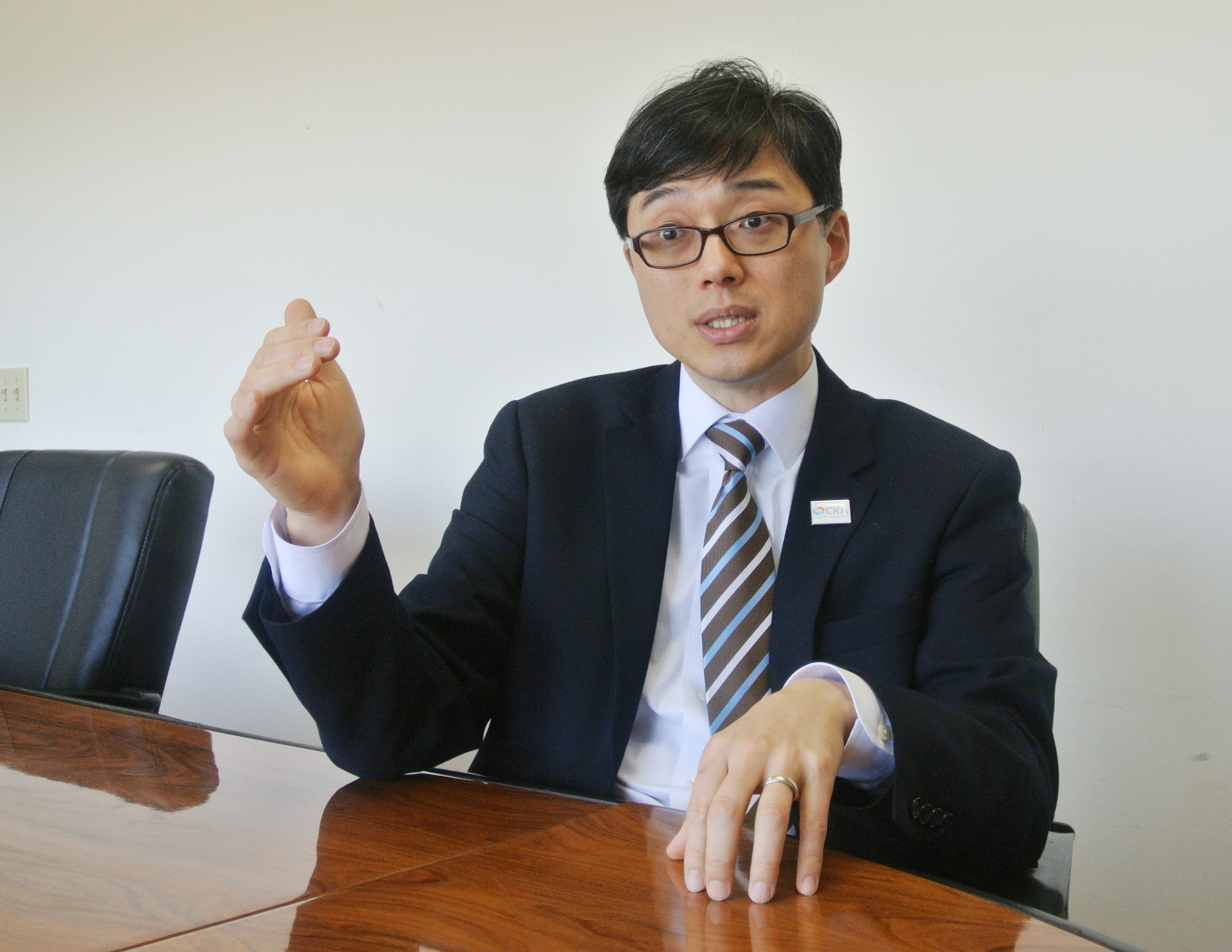- California Assembly OKs highest minimum wage in nation
- S. Korea unveils first graphic cigarette warnings
- US joins with South Korea, Japan in bid to deter North Korea
- LPGA golfer Chun In-gee finally back in action
- S. Korea won’t be top seed in final World Cup qualification round
- US men’s soccer misses 2nd straight Olympics
- US back on track in qualifying with 4-0 win over Guatemala
- High-intensity workout injuries spawn cottage industry
- CDC expands range of Zika mosquitoes into parts of Northeast
- Who knew? ‘The Walking Dead’ is helping families connect
“The first U.S. president of Asian descent will be Korean”
Virginia State Legislature Delegate Mark Keam predicts
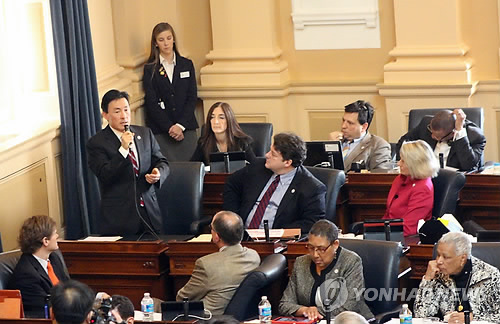
Mark Keam, left, is a third-term delegate of the Virginia state Legislature who co-sponsored Virginia’s East Sea bill. (Yonhap)
By Jane Han
NEW YORK — It wasn’t long ago that Koreans barely had a voice in American politics. Now, they’re quickly emerging as one of the most influential among Asian politicians, so much so that one notable legislator says the first U.S. president of Asian descent will be Korean.
“I think of all Asian-American ethnic groups, I would say at this stage based on our history and trajectory, the first U.S. president of Asian descent will be Korean,” Mark Keam, a third-term delegate of the Virginia state Legislature who co-sponsored Virginia’s East Sea bill, said in an interview with The Korea Times.
There are several reasons, he said, but one of the foremost is because the growing Korean population in the U.S. is creating a larger pool of solid potential politicians.
“In the ‘80s, I didn’t run across a single Korean in Washington D.C. You just didn’t see any,” said Keam, who first began his political career as a college intern on Capitol Hill. “That’s 25 to 30 years ago. Now, things are a lot different.”
According to the 2010 U.S. Census, the Korean population rose to more than 1.7 million in 2010, up nearly 40 percent compared to 10 years ago. And many of the growing younger generations are actively shifting from being mere observers to active stakeholders in political matters.
Besides Keam, Ron Kim, a member of the New York State Assembly; Jun Choi, former mayor of Edison, New Jersey; and Sam Yoon, former Boston city councilor, are some of today’s prominent Korean-Americans in politics.
“These are the people that I worked with while growing up,” said Keam, 47, who was born in Seoul and lived in Vietnam and Australia before moving to the U.S. in 1980.
“The important thing is that whether we win or lose, we now have Koreans who are trying. We now have legitimate, credible candidates who can win, not just at the county and state level, but the federal level as well.”
And the rise of Korean-American politicians particularly stands out up against other Asian ethnic groups, namely Japanese and Chinese.
“Chinese-Americans have made a mark, but we have to consider the fact that there are at least twice as many Chinese as Koreans in the U.S.,” he said. “Their level of success has peaked out as there are no real prominent elected Chinese officials now.”
Keam went onto say that bilateral relations between Korea and the U.S. are also an important factor that will help bolster Korean-Americans’ role in U.S. politics.
U.S.-China relations will be more strained in the next decade or so, he said, and the height of the U.S.-Japan relationship is pretty much over.
“Meanwhile, Korea is economically growing and is a powerful military partner with the U.S. Korean pop culture is dominating Asia and the influence is coming to the U.S. There are positive things happening between Korea and the U.S. and people in America are going to start feeling comfortable about Korea,” said Keam. “All of this is a tremendous benefit for Korean-Americans.”
And these Korean-Americans, in turn, can help out with issues that matter to Korea and Koreans.
Kim, the New York assemblyman, was spotlighted in the news recently as he stepped in to settle a standoff between elderly Koreans and McDonald’s over seating rights.
A controversial bill passed in Virginia will soon require school textbooks to recognize the body of water between South Korea and Japan as both the Sea of Japan and the East Sea.
But despite people lauding his effort, Keam, who was hard at work on this issue, says the bill has nothing to do with Korea.
“The bill is addressing that children in Virginia be taught with accurate textbooks. It is very much a Virginia issue,” he stressed.
He, however, did acknowledge that Korean-American politicians generally do find a connection with their mother country, unlike many Chinese- and Japanese-Americans.
“If you were a Korean-American politician today, you will be more proud of yourself in the next 10 years. Korean-Americans can use their homeland as an asset,” he added. “This is unique compared to all other Asian countries.”
Keam urged that Koreans in the U.S. must take part in politics, even in such simple ways like voting, to make sure that their voice doesn’t get lost.
“If we don’t step up to encourage Korean-Americans to become staffers, fundraisers and so on, we’ll never get involved,” he said. “It’s a power struggle. Power is something you have to take away from somebody and make it yours.”







